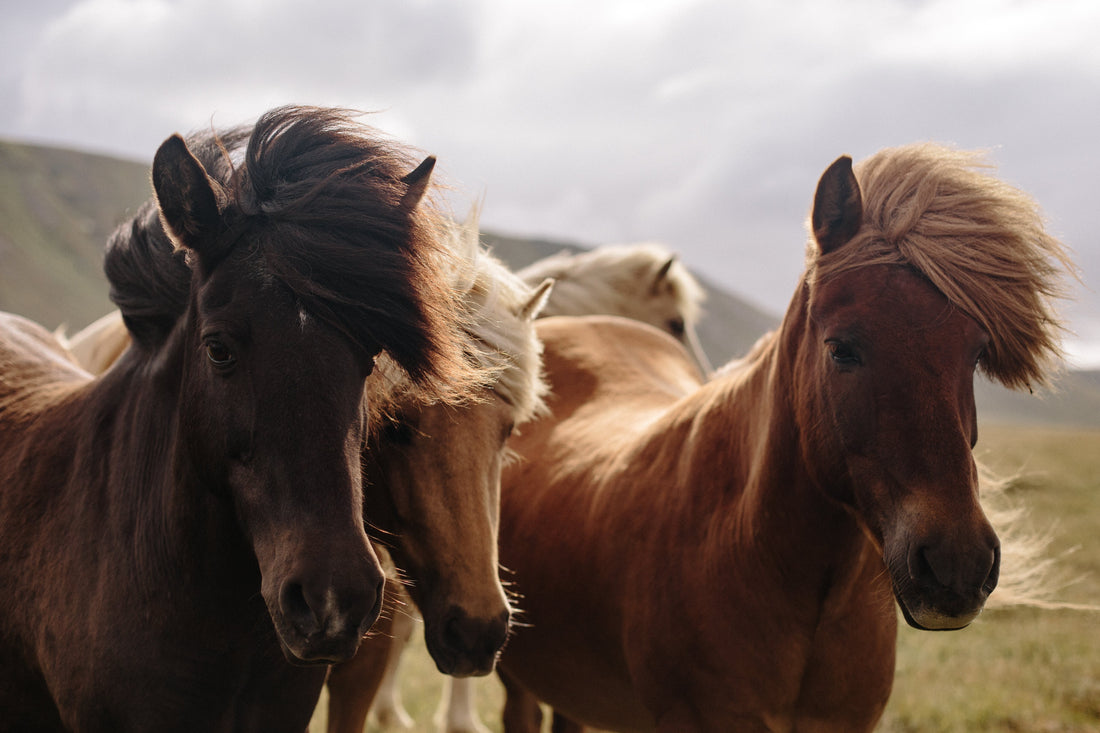
Avoiding Colic in Horses
Understanding Digestive Problems in Horses
Horses are more prone to digestive problems like colic or gastric ulcers than any other domesticated animals. This is because of their unique and incredibly sensitive digestive system and how stabled horses are fed.
The Unique Digestive System of Horses
The digestive system of a horse is made up of two main sections- the foregut comprising the stomach and small intestine and the hindgut which comprises the caecum and colon, collectively called the large intestine. The stomach of the horse is relatively small and can moderately digest simple carbohydrates found in grains. The long and narrow small intestine further digests food and absorbs vitamins and minerals. The small intestine opens into the large intestine which is the site of fermentation and breakdown of complex carbohydrates that come from forage like grasses and hay. The gut flora found in the hindgut is responsible for the fermentation of complex carbohydrates. The horse, by nature, is a foraging animal and its digestive system is designed to transfer its natural food (grass and hay) to the hindgut as quickly as possible. Chewing of forage stimulates the flow of copious quantities of saliva which helps buffer the stomach against acids and maintain a healthy pH. Without sufficient forage the acidity of the gut can become too high, risking damage to the stomach lining and the rest of the digestive tract causing problems like gastric ulcers and colic.
Horses do better when fed small quantities of low-calorie high fiber food on a regular basis. Giving a large quantity of grain rich diet containing simple sugars can cause an upset in the pH of the gut because of excessive fermentation by gut microbes. This imbalance can lead to diarrhoea, laminitis and colic.
Colic in Horses
Colic is a broad term for abdominal pain & encompasses a variety of problems ranging from pain due to excessive gas to life-endangering intestinal torsions. In many cases though painful and causing discomfort to the horse, the digestive system rights itself with time and without too much medical intervention. Serious intestinal disruptions like blockages, twists (torsion) and ruptures can be fatal without fast medical action and/or surgery to remove or repair the damaged part is successful.

Signs of Colic
The typical signs include:
- Pawing the ground
- Kicking or biting the flank
- Repeatedly lying down and getting up
- Rolling
- Sweating
- Curling the upper lip
- Dullness & depression
- Increased breathing
- Stretching hind legs far behind
- Inappetance
Causes of Colic
Some of the common causes of colic are:
- High grain/ low forage diets
- Mouldy or contaminated feed
- Abrupt change in feed
- Parasite infestation
- Lack of adequate water
- Ingestion of sand
- Stress
- Long-term use of NSAIDs
- Obesity

Types of Colic
- Gas Colic: It occurs when there is an excessive gas build up within the intestines and causes a lot of flatulence.
- Spasmodic Colic: This is the result of intestinal cramps or spasms.
- Impaction Colic: This happens when semi or partially digested feed builds up in the large intestine and stops moving causing a blockage or impaction. Horses with impaction colic do not pass dung.
- Sand Colic: Occurs when horses are fed from sandy floor. Fine particles of sand get ingested with the food and can build up causing colic.
- Twisted Gut: Can occur when a portion of the intestine twists (torsion) on itself or inverts into itself (intussusception). This type of colic is not very common but is very serious and life threatening.
- Displacement/ Entrapment Colic: This happens when a portion of the intestine moves from its normal location. If the displacement cannot move back to its location it becomes as entrapment. Neither is very common but can be potentially life threatening and need immediate surgical treatment.
- Strangulation Colic: Another uncommon but very serious and life threatening type which occurs when the blood supply to an area of the intestine is cut off or ‘strangulated’ causing death of the intestinal wall.

Prevention of Colic
While it may not be possible to guarantee your horse a colic-free life, there are certain precautions that you can take to minimize instances.
Forage: This is by far the most important step necessary to avoid colic. Feed at least 50%- 60% of the daily ration as good quality forage (hay or pasture grazing)
Water: Provide access to clean fresh drinking water at all times
Feeding Program: Feed your horse on a regular schedule and do not make sudden changes to his diet. Gradual change to the diet allows the gut microbes or bacteria to adjust to the change.
Exercise: Make sure your horse gets adequate exercise. Research has shown that horses who spend a large part of their day confined to stalls are more prone to abdominal stress.
Grains: If possible, avoid grains as much as you can. If you have to include grains in the diet, give in small and more frequent portions that allow the small intestine to digest the carbohydrates properly, preventing acidosis that can cause colic.
High Energy: In cases of horses who have higher energy requirements, give a high-energy, high-fiber diet when more calories are needed.
Parasite Control: Follow a regular deworming and parasite control program for your horse
Sand Control: Keep feed off the ground to prevent ingestion of sand by giving the feed in a suitable container. Forage can be provided in a hay net.
Supplements: Omega 3 fatty acids help reduce inflammation, pro and prebiotics help boost gut flora and vitamin E repairs gut tissue and supports immunity.
Conclusion:
Since the digestive system of a horse is complex and delicate many practical steps can be taken to improve digestive health. Even the smallest details can make a large difference. In the overall picture, a healthy horse is a happy horse and able to perform to his best ability.
